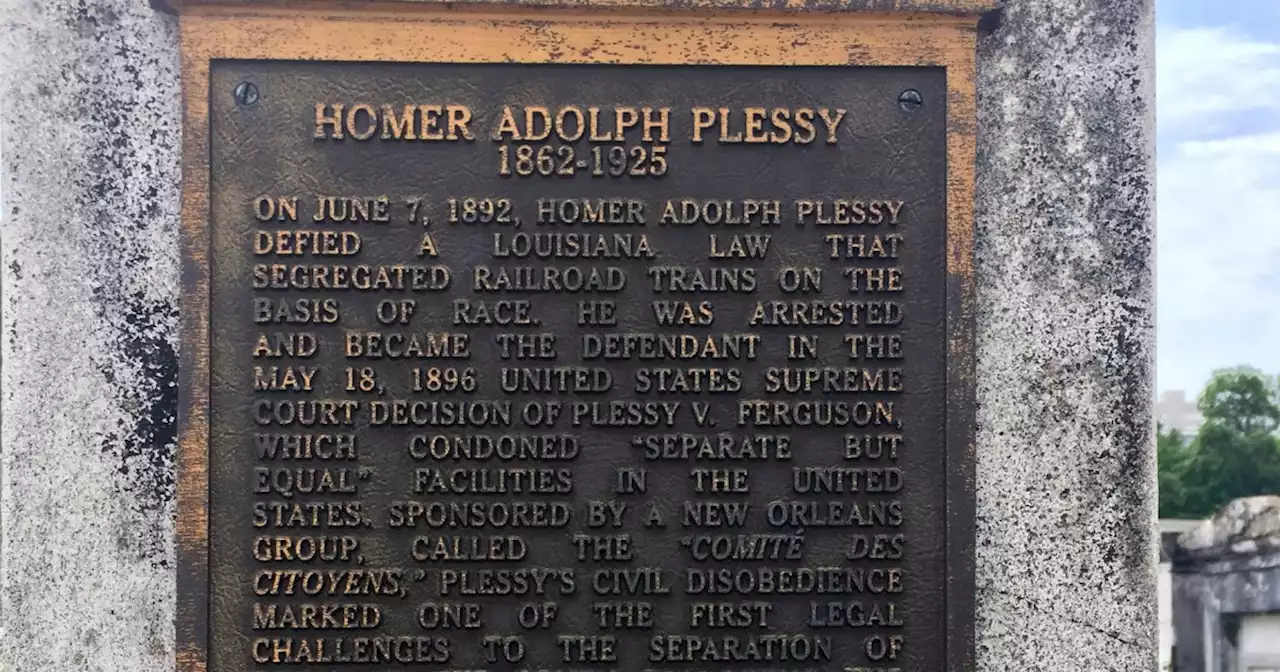Louisiana’s governor is slated to posthumously pardon Homer Plessy on Wednesday, more than a century after the he was arrested in an unsuccessful attempt to overthrow a Jim Crow law creating “whites-only” train cars.
on Wednesday, more than a century after the Black man was arrested in an unsuccessful attempt to overthrow a Jim Crow law creating “whites-only” train cars.
It spotlights New Orleans as the cradle of the civil rights movement, said Keith Plessy, whose great-great-grandfather was Plessy’s cousin — Homer Plessy had no children. A marker on the burial site for Homer Plessy at St. Louis No. 1 Cemetery in New Orleans, on June 3, 2018.Instead, the 1896 ruling solidified whites-only spaces in public accommodations until a later Supreme Court unanimously overturned it in Brown v Board of Education in 1954. Both cases argued that segregation laws violated the 14th Amendment’s right to equal protection.
Plessy lacked the business, political and educational accomplishments of most other members of the group trying to strike down the segregation law, Keith Weldon Medley wrote in the book ”We As Freemen: Plessy v. Ferguson.” But his light skin — court papers described him as someone whose “one eighth African blood” was “not discernable” — positioned him for the train car protest.
